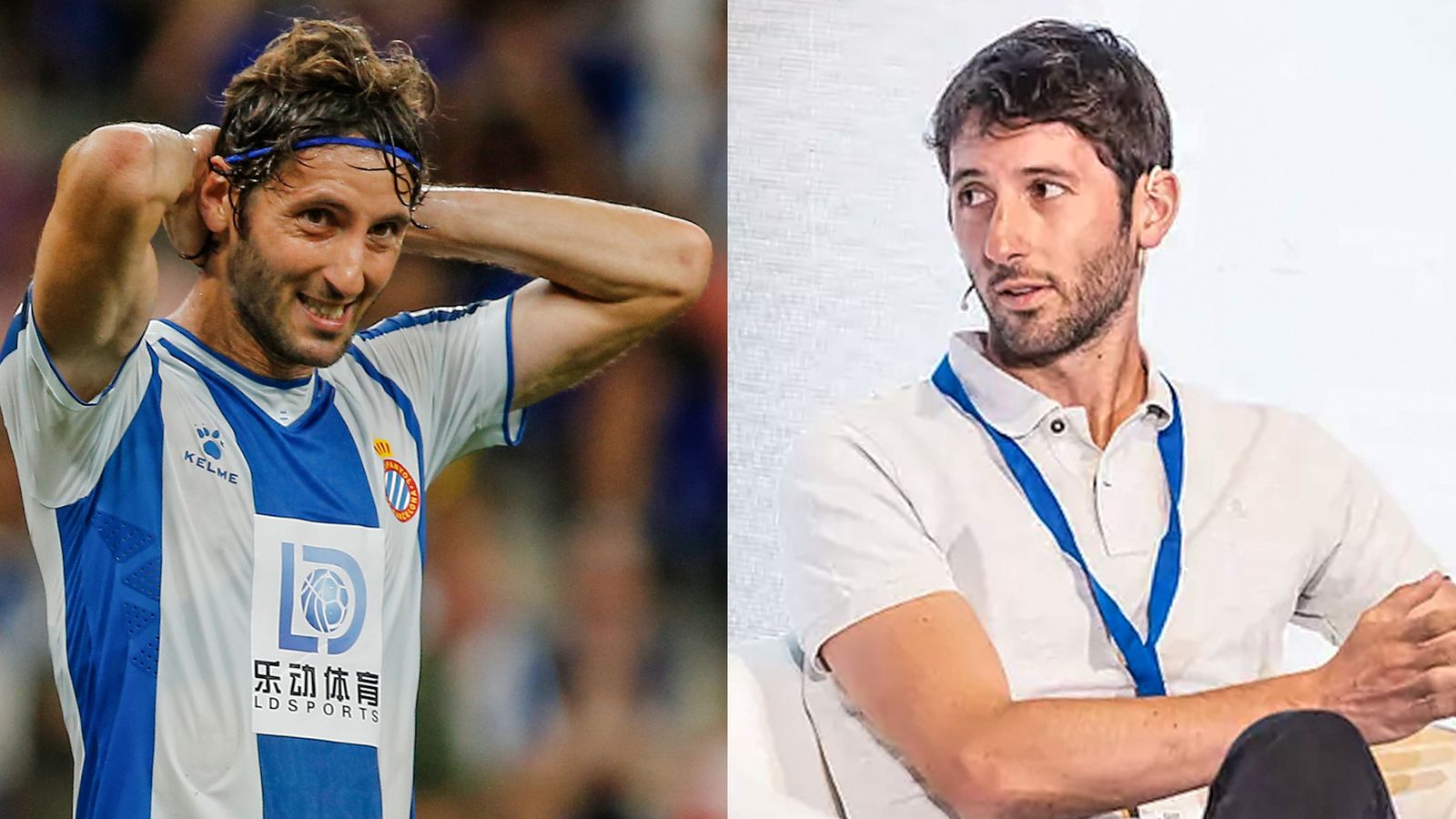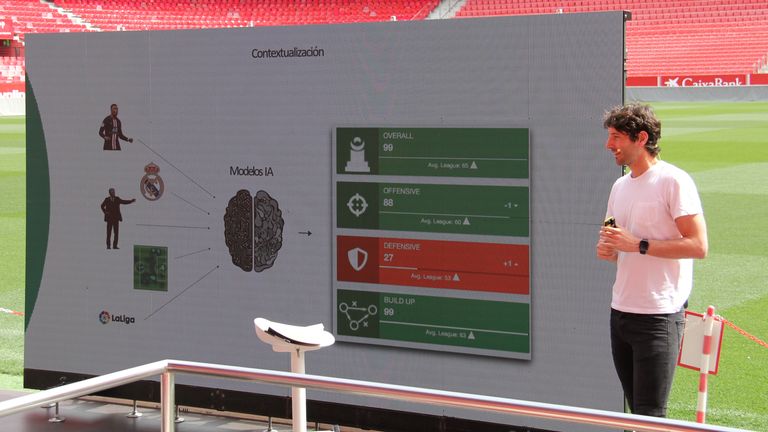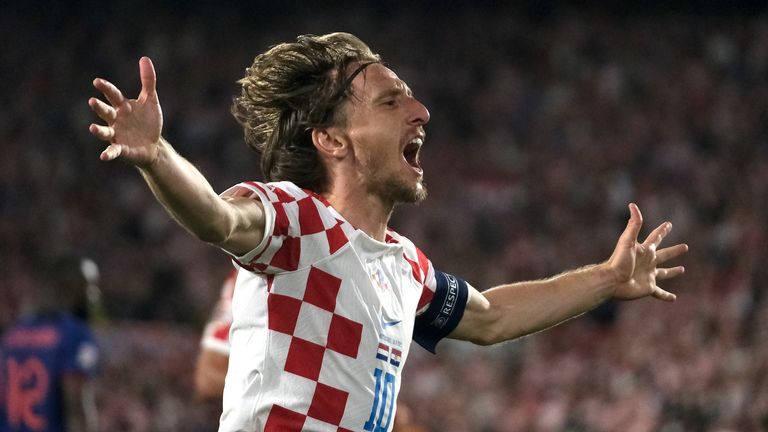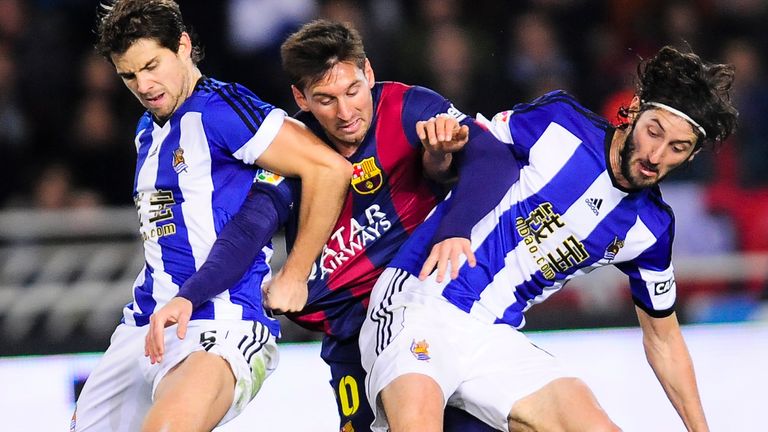
When Esteban Granero’s playing career was winding down and he was pondering what to do next, he began to explore the use of data in football. There was so much of it available. But how, he wondered, could it be used more effectively? Olocip was born.
The company, of which Granero, a former Real Madrid midfielder, is founder and CEO, specialises in the development and application of artificial intelligence in football and has been active since 2016, long before the technology exploded into the public consciousness.
“We are seven years old already, so we were doing this when almost nobody was talking about artificial intelligence in sport,” Granero tells Sky Sports, as part of our Future of Football series. “This is an advantage we have now that artificial intelligence is on the lips of everybody.”
It is perhaps fitting that Olocip saw all this coming given their core aim is to “move analysis from the past to the future”, as Granero puts it, allowing clubs, coaches and players to make better-informed decisions around tactics, transfers and much more.
Olocip’s Madrid-based team of scientists have spent years developing their offering, processing huge quantities of data and using complex algorithms to provide their clients with analysis which is predictive and prescriptive rather than just descriptive.
“In terms of prediction of performance, we have been selling our platform for years already,” says Granero. “So, now that the AI wave is coming to us in sport, we are ready to solve things, and we already have a name and a reputation in the industry.”
The recent boom in artificial intelligence has left many concerned over its potential risks to society. Some experts have called for the development of the technology to be paused. But others view it as a cause for excitement and Granero is one of them.
“The impact of AI is only comparable to the impact of electricity 100-and-something years ago,” he says. “It’s not only the application of AI, it’s how it is transforming all the technology around.
“So, the impact is global, and much broader than any other technology. Of course, there are some dangers we have to be careful with. But, in terms of sport, I believe it’s going to be a key technology.
“The reason is because decision-making in sports is quite important. It involves a lot of money and a lot of passion. So, being efficient in decision-making and reducing uncertainty – for example making a signing or not – is something that of course is interesting.”
Olocip’s technology strives to aid decision-making during games as well as in the transfer market.
“I think AI, and Olocip in particular, has to focus on a couple of things that differentiate it from traditional big data and the first is objectivity. AI can bring objectivity to performance analysis.
“So, now, we are not just counting how many things a player is doing in a game. We are measuring how much value every action that every player makes is having on the team.
“For example, a clearance, an interception, a pass. Everything a player does has an impact on the probability of the team scoring or conceding. So, we are able to measure how much value they add.
“This is something that is a big jump for analysis, and the second thing that differentiates AI from traditional big data is moving this analysis forward. We have seen what a player has done in the past, but we want to know what they will do in the future.
“For example, if a club are signing a player, the context will change and therefore the performance will change. We want to anticipate that change. The only technology that can do that is AI.”
As well as helping clubs decide between potential transfer targets, Olocip’s analysis can be used to inform decisions around contract renewals for the players they already have.
“It allows clubs to see how their players will evolve,” says Granero. “The context from one year to another changes. It’s not only about the age of the player, but also the team-mates, the coach, the position the player plays.
“For example, every year, people think Luka Modric is going to perform worse than the year before, but he performs better. So, it is about many other factors, not just age. Of course, clubs are happy to reduce the uncertainty around players in that sense too.”
In addition to clubs at various levels across Europe, Olocip work with individual players and the agencies who represent them.
“If you analyse yourself using AI, you can identify what you are doing well and badly from an objective point of view,” explains Granero. “Objectivity will bring a better analysis of yourself.
“This is also very interesting in terms of future performance because when we talk about players, we also talk about the agencies who represent them. We are working with agencies a lot on predicting performance of players in different contexts.
“This is very important to make a good choice in the transfer window, and to explain to your club, or the club that wants you, that you deserve a contract, or an extension, or that they shouldn’t reduce your salary because you are going to perform even better.
“These kinds of things are very important. When a player is going to move to a team, he has uncertainty, for sure. But this uncertainty can be reduced. If you have three offers, we can tell you which one of these offers will be the best in terms of performance.
“This is not just guessing. We are applying AI that is scientifically validated and gives trends which are real. Of course, it is not a crystal ball, but it’s much closer to the future than believing past performance will be the same in a different context.
“If you only have one or two decisions to make, then, of course, you can still make mistakes. But if you have hundreds, this reduction of uncertainty can be very important.”
As a former player with QPR, Real Socieded and Espanyol as well as Real Madrid, Granero is uniquely positioned to comment on how technology is transforming the game on the pitch as well as off it.
“It is more difficult to be a footballer now than it was 20 years ago, when I started, so I’m lucky to have finished my career now,” he smiles. “You have more weapons, more knowledge of what you need to be at your top level, but the level is higher.”
His focus now is to ensure that, through Olocip, both players and clubs are equipped for what the future holds.
“Football is changing, becoming more physical, and the change is coming faster,” Granero says. “Technology has to work together with people in order to anticipate the changes, to adapt, and to help the clubs and the industry facilitate these future trends.
“People and technology working together is much more efficient than separately. Technology is not going to fire anybody from their jobs, it is just something which can help people do a better job.
“In the end, that is what we are trying to do.”




